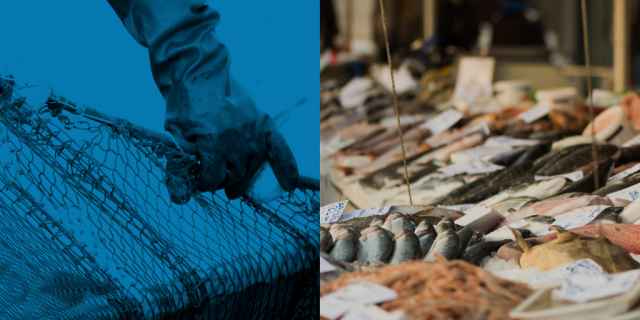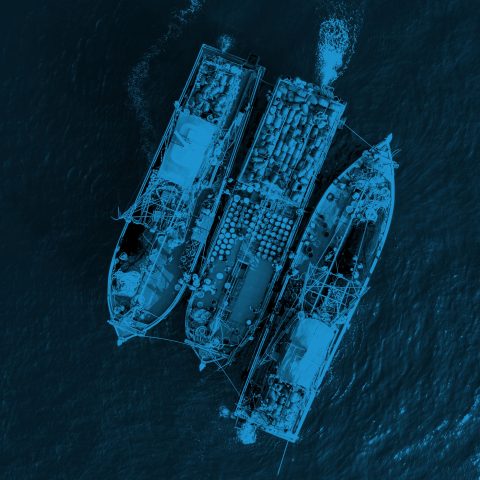
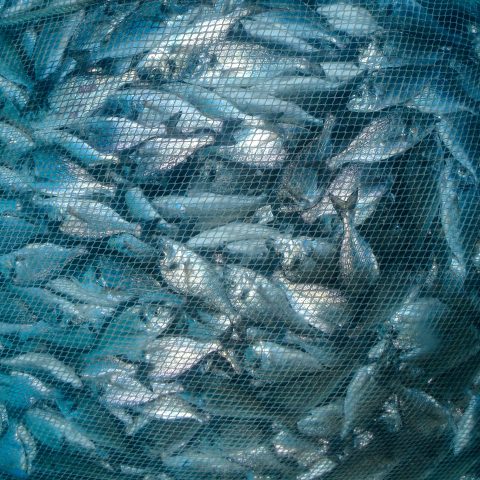
2023 Seafood Stewardship Index
October 2023

The third iteration of the Seafood Stewardship Index ranks the sustainability performance of the world’s 30 most influential companies in the seafood industry, representing about a quarter of the world’s global seafood industry revenue. This benchmark assesses major fishing and aquaculture companies, seafood brands, seafood processors and aquaculture feed companies on their social and environmental impacts, aligned with the UN Sustainable Development Goals.
By being a significant source of nutritious and low carbon protein for more than 3 billion people and supporting the livelihood of more than half a billion people, the seafood industry has a key role to play in achieving sustainable and equitable food systems while at the same time protecting and restoring oceans. The 2023 data shows that even though progress is being made by a few leaders, most of the companies assessed still fail to demonstrate meaningful efforts to address their social and environmental impacts.
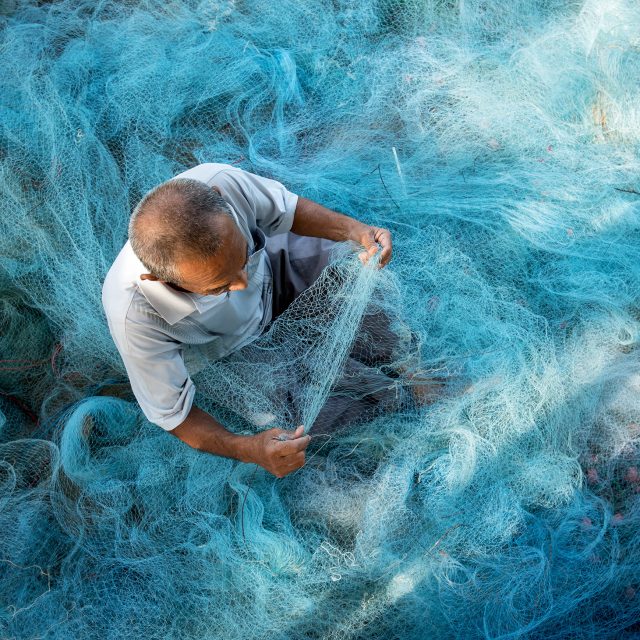
Five key findings
The third Seafood Stewardship Index assessment shows that more companies are taking actions on important topics such as human rights due diligence, sustainable sourcing and traceability. However, action is still lacking on key issues such as illegal fishing, sustainable feed ingredients, antibiotics use, gender and forced labour. Moreover, 12/30 companies score less than 20/100 and thus still fail to recognize their role and impact to achieve sustainable seafood production. This signals the importance of holding laggards accountable to ensure that the most influential and powerful companies in the seafood sector fulfill their responsibilities in helping deliver the Sustainable Development Goals.

Despite global efforts to eradicate illegal fishing, companies remain on the sidelines
Illegal, unreported, and unregulated (IUU) fishing poses an enormous threat to the sustainability of fisheries and the well-being of fishers and coastal communities, particularly in developing countries. IUU exacerbates issues such as overfishing, environmental degradation, and human rights abuses like slavery at sea. With 20% of the world's catch originating from IUU fishing, large seafood companies, due to their size and global reach, must become part of the solution by identifying risks and developing a clear plan of action. However, only 3/30 demonstrate they assess IUU risks in their operations and supply chain and none disclose the results of their assessments. While most companies are taking some steps to mitigate IUU risks through certification, too few know where the risks are in their operations and supply chains.
Read more
More companies commit to traceability but remain vague on concrete progress
Complex seafood supply chains mask social and environmental issues and contribute to fraud and mislabelling. To ensure seafood products are legally caught, ethically produced and environmentally sustainable it is paramount that companies trace their seafood products from boat to plate. It is therefore encouraging that a growing number of companies [24/30] have a traceability commitment, including 12 companies endorsing the Global Dialogue for Seafood Traceability (GDST) standards. However, to instil confidence in these commitments, companies need to be transparent on their progress. Indeed, less than a third [9/30] of companies disclose information about the traceability systems they have in place, of which only four demonstrate they are actively working towards implementing the GDST standards.
Read more
More companies taking first steps to address human rights risks
Due to the isolation of workers on fishing vessels at sea and the reliance of the industry on vulnerable migrant workers, the seafood sector is a high-risk environment for human and labour rights abuses. Establishing a robust framework of human rights due diligence (HRDD) is an essential first step for companies to combat these risks effectively. Encouragingly, compared to 2021, seven more companies have started to implement HRDD, bringing the total to 9/30 companies. However, most companies continue to fall short on their responsibility to respect human rights by not demonstrating any steps towards implementing HRDD.
Read more
Companies must better demonstrate efforts to support sustainable seafood
By controlling a large part of global seafood production, the largest companies in the seafood sector can play a key role in increasing the amount of sustainable seafood globally. Companies can play this role by sourcing from operations that are independently verified as sustainable and supporting operations making credible improvements. While it is encouraging that the vast majority of companies source at least some of their seafood from operations that are sustainable or improving, less than a third provide evidence that they have increased their sustainable seafood portfolio since 2021. To more clearly demonstrate their commitments to sustainability, companies should provide detailed breakdowns of the type of actions they are taking to improve the sustainability of the different parts of their entire portfolio.
Read more
To avoid empty promises, companies need to set ambitious targets and report progress
To transition toward greater sustainability, seafood companies must establish credible targets and report regularly on them. However, only 5/30 companies have established targets related to social, environmental and traceability topics and most companies do not provide the necessary reporting requirements to effectively monitor progress. Critically, only 7/30 companies have set a sustainability target to achieve 100% environmentally sustainable seafood and report progress on this target. Similarly, very few companies have set time-bound targets on other topics such as traceability, living wage, gender equality and human rights due diligence. This underscores the need for the industry's major players to set credible targets—ones that are time-bound, measurable, and regularly reporting on.
Read more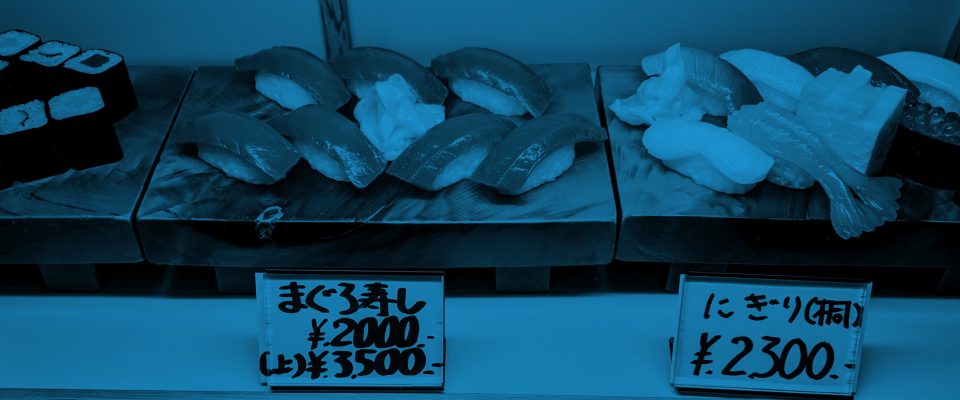
See how the companies performed
View rankingFurther reading
-
Data set
All the benchmark results and data are publicly available and downloadable.
Download scores
30 Seafood companies
Locations
-
Title: Austevoll Seafood
Place: Norway
Description: -
Title: BioMar
Place: Denmark
Description: -
Title: Bolton Group
Place: Italy
Description: -
Title: Bright Food Group
Place: China
Description: -
Title: Cargill
Place: United States of America
Description: -
Title: Charoen Pokphand Group
Place: Thailand
Description: -
Title: Cooke
Place: Canada
Description: -
Title: Dongwon Enterprise
Place: South Korea
Description: -
Title: FCF Co., Ltd.
Place: Taiwan
Description: -
Title: High Liner Foods
Place: Canada
Description: -
Title: Kyokuyo
Place: Japan
Description: -
Title: Labeyrie Fine Foods
Place: France
Description: -
Title: Marubeni Corporation
Place: Japan
Description: -
Title: Maruha Nichiro
Place: Japan
Description: -
Title: Mitsubishi Corporation
Place: Japan
Description: -
Title: Mowi
Place: Norway
Description: -
Title: Nippon Suisan Kaisha (Nissui)
Place: Japan
Description: -
Title: Nomad Foods
Place: UK
Description: -
Title: Nueva Pescanova
Place: Spain
Description: -
Title: Nutreco (Skretting)
Place: Netherlands
Description: -
Title: OUG Holdings
Place: Japan
Description: -
Title: Pacific Seafood Group
Place: United States of America
Description: -
Title: Parlevliet & Van der Plas
Place: The Neterlands
Description: -
Title: Red Chamber Group
Place: United States of America
Description: -
Title: Royal Greenland
Place: Greenland
Description: -
Title: SalMar
Place: Norway
Description: -
Title: Thai Union Group
Place: Thailand
Description: -
Title: Trident Seafoods
Place: United States of America
Description: -
Title: Wales Group (Sea Value & Sea Wealth)
Place: Thailand
Description: -
Title: Yokohama Reito (Yokorei)
Place: Japan
Description:
Previous findings
-
Seafood Stewardship Index findings from 2019 and 2021
In 2019 and 2021 we published the first and second iteration, assessing how the industry is performing and progressing.
See previous findings